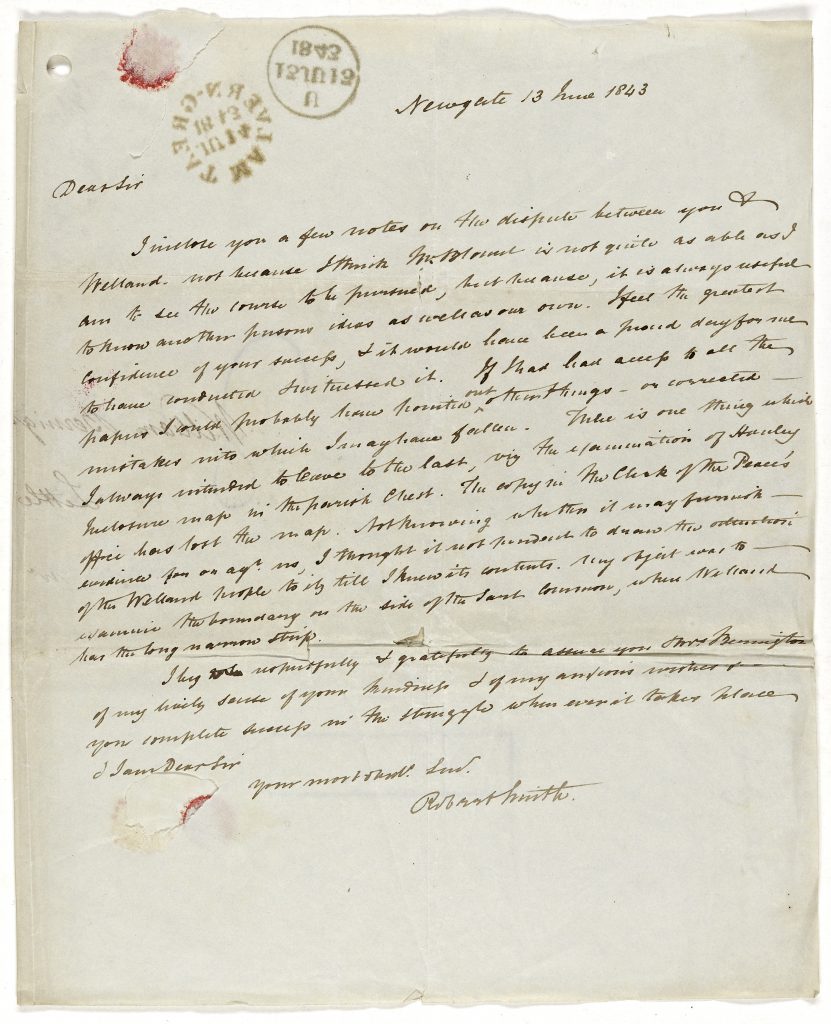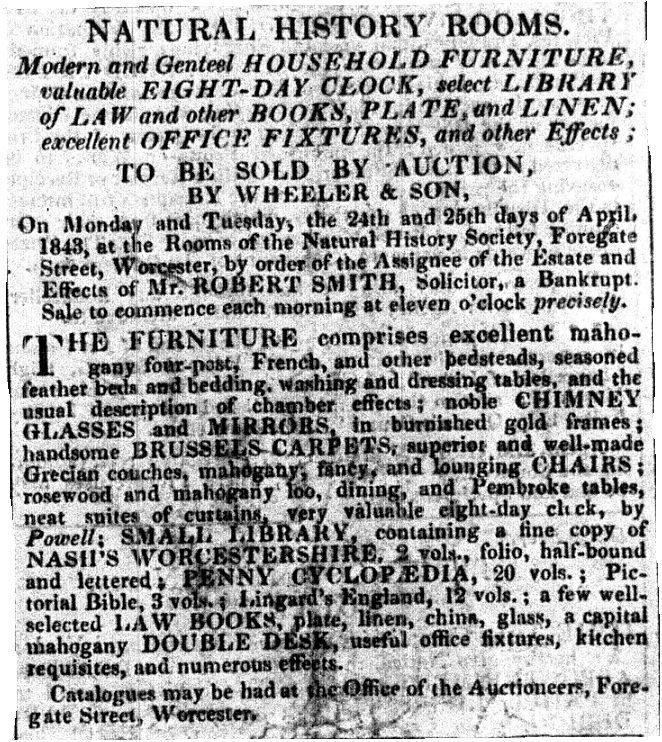Worcestershire Pride: Exploring LGBT+ records in the archives
- 22nd September 2017
It is an important year in the history of the LGBT+ community as 2017 marks the 50th anniversary of the partial decriminalisation of male homosexuality in England and Wales. The first ever Worcestershire Pride takes place this Saturday, 23rd September, and will be a fantastic opportunity to embrace the diversity of our county and give visibility to the LGBT+ community. Worcestershire Pride describe themselves as a ‘group of LGBT+ Worcestershire residents who believe in supporting, empowering and connecting the Lesbian, Gay, Bi, Pan, Ace/Aro, Trans and Non-binary community’. There have been recent reports showing an increase in the number of homophobic hate crimes in Worcestershire and it is hoped that, along with celebrating the LGBT+ community, Pride will also help to highlight this increase and offer advice on how to report hate crimes.
The past criminalisation of homosexuality means that quite often LGBT+ people were forced to conceal aspects of their lives from the communities they lived in and as a consequence their histories may not be immediately visible within our archive collections. As The National Archives notes in its guide to researching gay, lesbian and bisexual history, many alternative terms were used for both the individuals concerned and the offences they were often charged with. The hidden nature of LGBT+ history means that researchers will need to delve deeply into our collections to find out more, and may have to search records and terms that are not immediately obvious. This research is well worthwhile, however, and offers the chance to explore a wealth of information.
Because male homosexuality was previously illegal there are many criminal records to use in researching this subject. This is not the case for female homosexuality which was not officially criminalised. The information contained within court and prison records provide us with the opportunity to learn about the stories of ordinary people from our county who we may not otherwise know anything about. One such story was recently brought to our attention by one of our regular customers, who came across a newspaper cutting reporting the trial of a Robert Smith – solicitor and land agent to William Berington in the mid-1800s. This report sparked the interest of a member of our team, who has now gone on to research more about the story of this man:

Letter from Newgate prison. Held at reference 705:24/449 BA81
Amongst the records Worcestershire Archive Service holds from the Berington family of Little Malvern Court, are letters and documents relating to Robert Smith. From 1837 he was employed by Berington to oversee the commutation of tithes for the estate but, tragically, by 1843 his successful career was at an end. In February of that year he had been arrested in Hyde Park, London, with another man, George Stacey, and charged with indecent assault. George Stacey was butler to Sir Frederick Roe, a former magistrate at Bow Street. When Smith appeared in court, he gave the name ‘Richard Simpson’ – this caused speculation over his real identity as the name was known to be an alias. The trial was to continue in the name of Simpson, even when it was established he was in fact Robert Smith of 3, High Street, Worcester.
The trial was held at the Central Criminal Court where the two men were charged with eight offences, including indecent conduct towards each other in a public place, to which they both pleaded ‘not guilty’. During the trial, Smith’s defence team brought forward a number of individuals to give evidence as to his decency and honourable conduct. They also argued that the location where the two men were found together was not a public place. Although the two men were acquitted of the first seven charges, they were found guilty of the eighth – indecency in a public place. In sentencing Smith and Stacey, the judge hints at the uncertainty of whether they were in fact ‘in public’, however, as their actions, whether publically or privately committed, were believed to be criminal in themselves at that time, he sentenced them to one year in prison.
In March, 1843 Robert Smith was declared bankrupt and a sale of his belongings, including his ‘fine copy of Nash’s Worcestershire’, took place the following month at the Natural History Rooms in Worcester.

Sale of Goods. Berrows Worcester Journal: 20th April 1843. Available to view on microfilm at The Hive.
Smith was sent to Newgate Prison, where he continued to correspond with William Berington on matters concerning his situation, finances and the Berington estate. From the individuals willing to speak in his defence during his trial and his continued correspondence with William Berington even after his imprisonment, it would appear, as far as was possible, he retained the support of his friends and employer during this period. The last letter we have from him is dated June, 1843 regarding a land dispute in Welland.
Smith unsuccessfully appealed his conviction in November 1843, by which time he was at Millbank Prison, but we know nothing of him after that date. Neither, sadly, have we been able to find any more about his life apart from a note on a newspaper cutting in a scrapbook, reporting the trial, which reads ‘Sometime of Kidderminster & a Catholic/Papist’.
We would love to find out more about Robert Smith’s life, particularly from before his conviction and after his release – can you add anything to his story? Have you researched any other LGBT+ figures from the county using our archives? Share your story by commenting below or on our Facebook or Twitter page.
Worcestershire Archive and Archaeology Service are keen to work with our local communities to ensure that our collections fully represent both the distant and more recent diverse history of our county. If you are part of an LGBT+ organisation, or if you have personal records you would like to share with us, and you would like to find out more, please get in touch.
References:
- Smith letters: 705:24/448-450 BA81
- Appointment to act for William Berington: 705:24/186 BA81
- Foley Scrapbook: b899:31 BA3762 8a/vol. 3 pg. 79
- Microfilms of Berrows Worcester Journal: 20th April 1843. 11th May 1843. 22nd June 1843
- Home Office Registers of Criminal Petitions available on Findmypast.co.uk: TNA/CCC/HO19/010/00178
- Home Office Criminal Petition. Available on Findmypast.co.uk :TNA/CCC/HO18/122/00616
- Pigot’s Directory of Worcestershire. 1837. W900.1837
Post a Comment